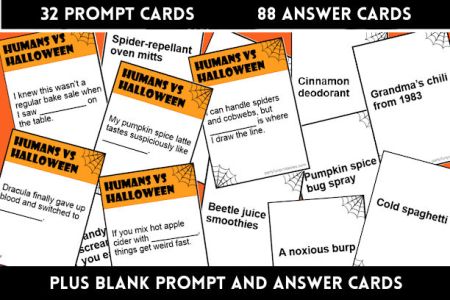15 Scavenger Hunt Rules
Basic Guidelines for Hosting a Hunt

15 Scavenger Hunt Rules and Guidelines
A successful scavenger hunt depends on everyone having fun and following the rules.
Nothing can ruin a well-planned hunt faster than guests arguing over unfair decisions or unclear guidelines.
Scavenger hunt rules will vary depending on the type of hunt you choose, the age group involved, and the location of the event, but it is important to make sure that everyone has a clear understanding of what is allowed/forbidden so there will be no arguments, surprises, or disappointments.
Ready? Let's start planning YOUR hunt!
List of 15 Scavenger Hunt Rules to Build Your Hunt Around
1. Set A completion Goal
Each individual/team will be given a list of items, challenges, or riddles that must be found or completed. The goal is to find all items, or complete all challenges, on the list. For a timed hunt, teams will work to complete as many items/challenges as possible within the allotted time period. For untimed hunts, the team to complete the list (with the fewest deductions), and return to home base first will be declared the winner(s).
2. Set A Time Limit
If you are planning a timed hunt, make sure that everyone knows the allotted time frame. For un-timed hunts, specify when and where everyone will be meeting to determine the winners. Every event must come to an end, and it is important that all participants know both the start and finish time of your hunt.
3. Set Boundaries FOR YOUR HUNT
Will the hunt be inside, outside, in a particular neighborhood or part of town, in a mall, etc? Are there places that are off-limits such as individual homes, certain businesses, or particular areas that may not be accessible to all players or that may not be safe? You need to be very clear about where participants may or may not go to find their items or complete their challenges. And always, ALWAYS, keep player safety in mind when setting boundaries.
4. Clarify Point Values
If items are worth points, be clear about the value of each.
5. Clarify What Will Lead to Point Deductions
Be clear about what will earn a deduction of points (ie. Asking for help from another group, finding an item in a forbidden area, obtaining an item illegally, etc.). You should also include how many points will be deducted for each offence so everyone knows exactly what to expect.
6. Set a Spending Limit (If Required)
May items be purchased, and if so, is there a set limit on how much money may be spent?
7. Note Any Order of Completion Requirements
Can the list be completed in any order or must teams follow a specific order?
8. Note Number of Team Members Required in Photos or Videos
When planning a video or picture hunt, be sure to specify how many members of the team must be in the photos. Do you (or the judges) require that the entire team be in the picture (possibly minus the person working the camera) or will a photo/video clip with only one or two players be considered acceptable?
9. Specify Time frames for Capturing Photos Or Videos
Be sure to specify if all photos or video clips must be taken during the time frame of the event or if they can be drawn from archives previously captured on players' phones, etc.
10. Note Whether Team MemberS Can Split Up or Not
Specify whether teams must stay together for the duration of the hunt or if they are permitted to split up to look for items/complete challenges. May teams or individuals join with other groups?
11. Note Whether Clues Are to Be Collected Or Simply Viewed
If collecting items, be clear as to whether they are to be kept or left where they are found for other teams to locate. This is especially important if you are hiding specific items for participants to find. If objects are to be left, make sure each team knows the requirement for proving that the item was found.
12. Note What Will Result In Automatic Disqualification
Cheating, stealing, sabotaging, removing hidden items, or breaking the law will result in automatic disqualification.
13. Exercise Common Courtesy When Interacting with the Public
If/when talking or interacting with strangers, business owners, or community workers, all participants must be polite and respectful. You don't want any complaints that may ruin the scavenger hunt for other teams or limit your ability to plan future events.
14. OBEY THE LAW at All Times
If using a car, seat belts must be worn and speed limits must be respected. No items can be obtained illegally, no trespassing on private property is permitted, etc.
15. THe Decision of the Judge(s) Is Final
The rules are the rules. The decisions of the judge(s) or event host are final.
Additional scavenger hunt rules available on individual scavenger hunts.
Recent Articles
-
Humans vs Halloween™ Printable Halloween Party Game
Oct 30, 25 04:42 PM
Humans vs Halloween™ is a fun printable fill-in-the-blank game where players compete to create the funniest answers. Perfect for family nights, classrooms, or adult parties!
-
Bridal Shower Scavenger Hunt Icebreaker Game with Free Printables
Jul 16, 25 09:14 PM
Get guests mingling with this fun bridal shower scavenger hunt icebreaker! Two signature-style printables included - wedding-themed and personality-based. -
Best Trump Nicknames Game – Hilarious Printable Fun
Jul 03, 25 03:02 AM
Our Best Trump Nicknames Game turns political satire into party fun. Match infamous nicknames like Sleepy Joe and Crooked Hillary using clever, funny clues.
- Home
- Scavenger Hunts
- Scavenger Hunt Rules


